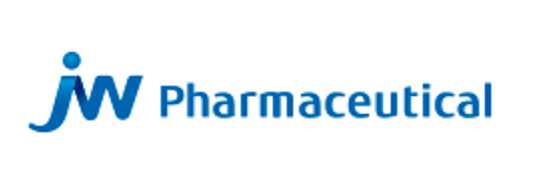In face of the COVID-19 pandemic, South Korea’s biotech companies have risen to the challenge of supplying the world’s vaccines, and the region is on the path to becoming one of the leading biologics manufacturers. The Korean government is actively introducing policies that favor biotech developments, such as supporting businesses to invest up to 65% of their net revenue in pharmaceutical R&Ds.
Besides launching a 2.2 trillion won (approx. $1.9 billion) plan to become one of the five largest COVID-19 vaccine manufacturing bases by 2025, the country also inaugurated 7 “Regulation Free Special Zone” to attract investments and jumpstart its homegrown biopharmaceuticals industry.
Here, GeneOnline curated some innovative and rapidly growing Korean biotechnology players, categorized by the company’s core business: vaccines developments and manufacturing, large molecule and small molecule drug, and cell & gene therapy.
Related article: South Korea’s Biotech Industry:Trends, Landscape, and Clusters Overview
VaccinesSK Bioscience
Established by the SK Group conglomerate in 2018, SK Bioscience focuses on vaccine development and manufacturing, including CDMO and CMO services. In June 2022, the company’s COVID-19 vaccine, SKYCovione, was the first domestic vaccine approved by the Korean government, SK Bioscience also reported that its vaccine is effective against the Omicron variant. The company is running several vaccine programs in collaboration with Sanofi, CEPI, and the Bill & Melinda Gates Foundation, these include a universal coronavirus vaccine, cancer immunotherapy vaccines, and a varicella vaccine.
The vaccine powerhouse reported record earnings in 2021, attributed to its strong contract manufacturing (CMO) business with AstraZeneca and Novavax’s COVID-19 vaccines. For 2021, sales increased to 929 billion won ($710 million) from 226 billion won ($172 million) in 2020.
Samsung Biologics/Samsung Bioepis 

Samsung Group’s biologics development and manufacturing arm is Korea’s leading pharmaceuticals manufacturer, and its latest manufacturing site – Plant 4 is scheduled to begin partial operations in October. Scheduled to complete in mid-2023, Plant 4 will be the world’s largest biomanufacturing capacity at a single site. As of 2022, there are only three companies with a production capacity of over 300,000L: Korea-based Samsung Biologics, Switzerland-based Lonza, and Germany-based Boehringer Ingelheim.
This March, Samsung Biologics announced a “multidimensional growth plan” doubling down on three pillars: encompassing expanded manufacturing capacity, continued advancements in business portfolio, and a greater global footprint. For 2021, the CDMO giant reported revenue of 1,568 billion won, an increase of 35% compared to 2020.
In the biosimilars market, Samsung Bioepis’ pipelines include medicines for immunology, oncology, ophthalmology, hematology, endocrinology, and gastroenterology. This June, the company launched its Byooviz (ranibizumab-nuna) biosimilar in the US, and is listed as the first ophthalmology biosimilar approved by the FDA.
BiologicsCelltrion 
Incheon-based Celltrion developed the world’s first biosimilar monoclonal antibody, named Remsima (Inflectra in the US), the drug was approved in at least 110 countries for treating rheumatoid arthritis, ankylosing spondylitis, ulcerative colitis, Crohn’s disease(CD), psoriatic arthritis, and psoriasis. In June, Celltrion received a positive CHMP opinion for its Vegzelma bevacizumab biosimilar, the drug is the corporation’s third oncology biosimilar to be recommended for marketing by the European Medicines Agency.
Celltrion’s total sales followed the region’s overall trend by growing from 1,627.6 billion won in 2020 to 1,804.5 billion won in 2021.
NEXGEN
NEXGEN Biotechnologies specializes in recombinant proteins and focuses on pharmaceuticals, diagnostic assays, functional cosmetics, and industrial materials. The company began to gain attention after presenting its recombinant proteins-based cosmetic products, dubbed “Biometics”, before this, NEXGEN mainly produced diagnostic kits. The Korean government also appointed NEXGEN Biotechnologies as its official research partner and listed the company’s research center as a National Research Laboratory in 2006. Currently, it is developing and producing over 70 types of protein growth factors and novel proteins for biomedical, diagnostic, and high-performance skin care products.
Small MoleculesJW Pharmaceuticals 
Headquartered in Seoul, JW Pharmaceuticals is an established general medicines manufacturer, with a portfolio ranging from diet supplements to oncology drug developments. Recently, this Korean company is actively securing research partnerships with foreign drug makers to bolster the development of its innovative therapeutics. Recently, JW Pharmaceutical’s partner, Chugai and Genentech announced new data from their Phase III HAVEN 6 study for hemophilia.
Cell & Gene TherapiesLG Chem Life Sciences 
The pharmaceuticals division of LG Chem is actively engaging in the development, manufacturing, and commercialization of therapeutic products, and is making multi-pronged approaches to expand its business in immunology, oncology, and metabolic diseases. LR19023, LG Chem’s next-generation CAR-T cell treatment, is currently in pre-clinical stage development for solid cancers. Wasting no extra time to boost its CAR-T program, the chemical manufacturer just signed a strategic platform license (SPL) with cell engineering company MaxCyte for access to proprietary cell manufacturing platforms.
SequencingMacrogen 
Macrogen is one of the top 5 sequencing providers with offices all over the world, including Maryland (Psomagen) and Amsterdam (Macrogen Europe). In 2018, Macrogen became the first Korean clinical laboratory to achieve CLIA accreditation, which allows them to perform clinical laboratory testing in the US. The company’s services include genomics, epigenomics, proteomics sequencing, and DNA synthesis for both research and clinical clients, in 2021, Macrogen expanded its research portfolio to include single-cell sequencing, SARS-CoV-2 variant determination, and protein analysis services.
Due to increased demand for sequencing services, particularly for COVID-19, Macrogen reported a record $25 million annual revenue in 2021. With an expected annual growth of 26% through 2031, Macrogen said the expansion to proteomics and single-cell analysis will attract more clients from the drug development and healthcare segments.
©www.geneonline.com All rights reserved. Collaborate with us: service@geneonlineasia.com